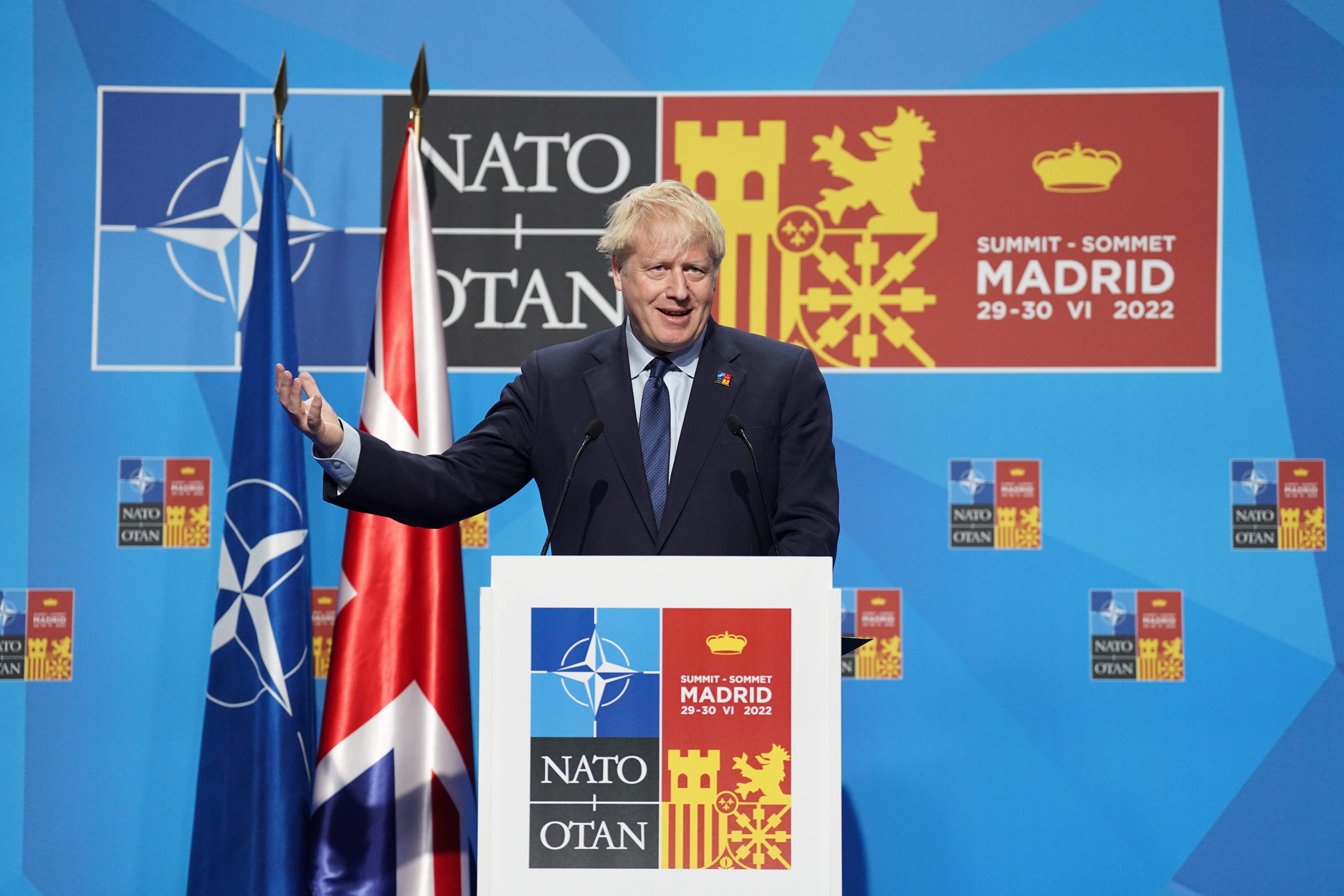Johnson commits to raising UK defence spending to 2.5% of GDP by end of decade
The Prime Minister said that the ‘cost of freedom’ is ‘always worth paying’.

Your support helps us to tell the story
From reproductive rights to climate change to Big Tech, The Independent is on the ground when the story is developing. Whether it's investigating the financials of Elon Musk's pro-Trump PAC or producing our latest documentary, 'The A Word', which shines a light on the American women fighting for reproductive rights, we know how important it is to parse out the facts from the messaging.
At such a critical moment in US history, we need reporters on the ground. Your donation allows us to keep sending journalists to speak to both sides of the story.
The Independent is trusted by Americans across the entire political spectrum. And unlike many other quality news outlets, we choose not to lock Americans out of our reporting and analysis with paywalls. We believe quality journalism should be available to everyone, paid for by those who can afford it.
Your support makes all the difference.Boris Johnson has committed Britain to increasing defence spending to 2.5% of GDP by the end of the decade as Nato rises to the threat of Russian aggression.
The Prime Minister pledged the hike on Thursday after a Cabinet row over defence spending, and insisted that the “cost of freedom” is “always worth paying”.
As Mr Johnson met with Nato leaders in Madrid, the Government also set out a further £1 billion of funding to help Ukraine defeat Russian President Vladimir Putin’s invasion.
The UK is counting its support for Volodymyr Zelensky’s resistance within its defence spending, taking the current level to around 2.3% of gross domestic product (GDP) – a measure of the size of the economy.
The logical conclusion of the investments on which we propose to embark, these decisions, is that we’ll reach 2.5% of GDP on defence by the end of the decade
But, at a press conference at the Nato summit, Mr Johnson said it was necessary to “invest in the long term” while adapting to a “more dangerous and more competitive world”.
“The logical conclusion of the investments on which we propose to embark, these decisions, is that we’ll reach 2.5% of GDP on defence by the end of the decade,” he said.